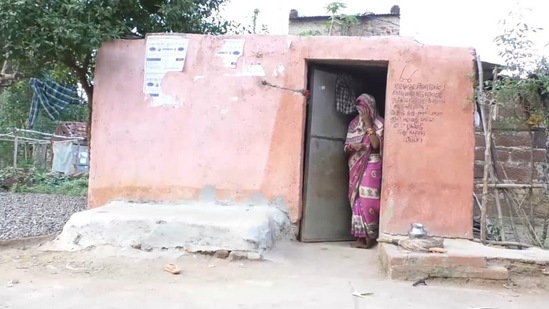Sanitation: A women-led, game-changing, initiative
NGO Shelter Associates, which has been working with the urban poor in Maharashtra to provide basic services, has came up with the concept of One Home One Toilet
Sanitation has always been a challenge in urban slums due to the lack of safe water and toilets. Though there have been improvements, the situation is still appalling in many slum communities. Women and adolescent girls suffer the most from the lack of clean toilets in a variety of ways, among them lack of safety while accessing community facilities.

It was with this in mind that non-governmental organisation (NGO) Shelter Associates, which has been working with the urban poor in Maharashtra to provide basic services such as housing, water, and sanitation, came up with the game-changing concept of One Home One Toilet. Explaining the initiative, Shelter Associates executive director Pratima Joshi says, “Today’s urban slum population is most vulnerable due to lack of access to safe sanitation services, yet their voices are often excluded from the planning and implementation of sanitation projects. Our One Home One Toilet model ensures their participation at every stage. What is unique about this initiative is that it is data-driven and women-centric”.
Using technology and Google Earth for poverty mapping, the NGO worked with urban local bodies to provide 25,000 home toilets across slums in seven cities of Maharashtra. In most data mapping exercises, women and girls are not a primary focus. In this drive to provide toilets in each home, women and girls have been adequately represented. The data is co-created with the help of mostly women volunteers who conduct community meetings and door-to-door household surveys. The data collected is disaggregated by gender with a focus on collecting information affecting women and girls in particular. The data documents their lived experiences and tells their story.
Lata, an elderly woman from Navi Mumbai, says “I was worried for the safety of my granddaughter who had to walk along with me to assist me to the community toilet, especially during late hours. I am extremely grateful for the One Home One Toilet scheme which solved my biggest problem by giving us a toilet at our own home”.
The lack of sanitation affects women and girls in many ways. They are unable or fearful of accessing community facilities, especially at night. The inability to do so results in stress and negative health impacts like urinary tract infections. It creates a barrier to menstrual hygiene and leads to a lack of productivity at a time when women are trying to re-enter the labour force. This approach enables local urban bodies to assess problems such as missing or inadequate sewerage networks, inaccessible community toilet blocks, and open defecation status. This helps with more targeted service delivery.
Women volunteers are trained to collect, read and analyse data and maps using Android apps. Women from slum communities rarely get a chance to use technology and they almost never deal with numbers. The important change here is that a degree of confidence is shown in their abilities, increasing their sense of self-worth.
Sujata, a vegetable vendor from Pune, is one such volunteer. After learning to read spatial data from the Shelter Associates’ team, she was able to bring about a significant change in the sanitation status in her community by convincing people to get a toilet built in their homes. Sujata says with pride, “People who called me bhajiwali (vegetable seller) before now call me madam”.
When it comes to families who receive support for home toilets, it is the women of the household who decide on the location of the toilet and choose all its fittings. This makes them feel in charge, a big step forward for women who are almost invisibilised in urban slum settings.
lalita.panicker@hindustantimes.com
The views expressed are personal
Continue reading with HT Premium Subscription





